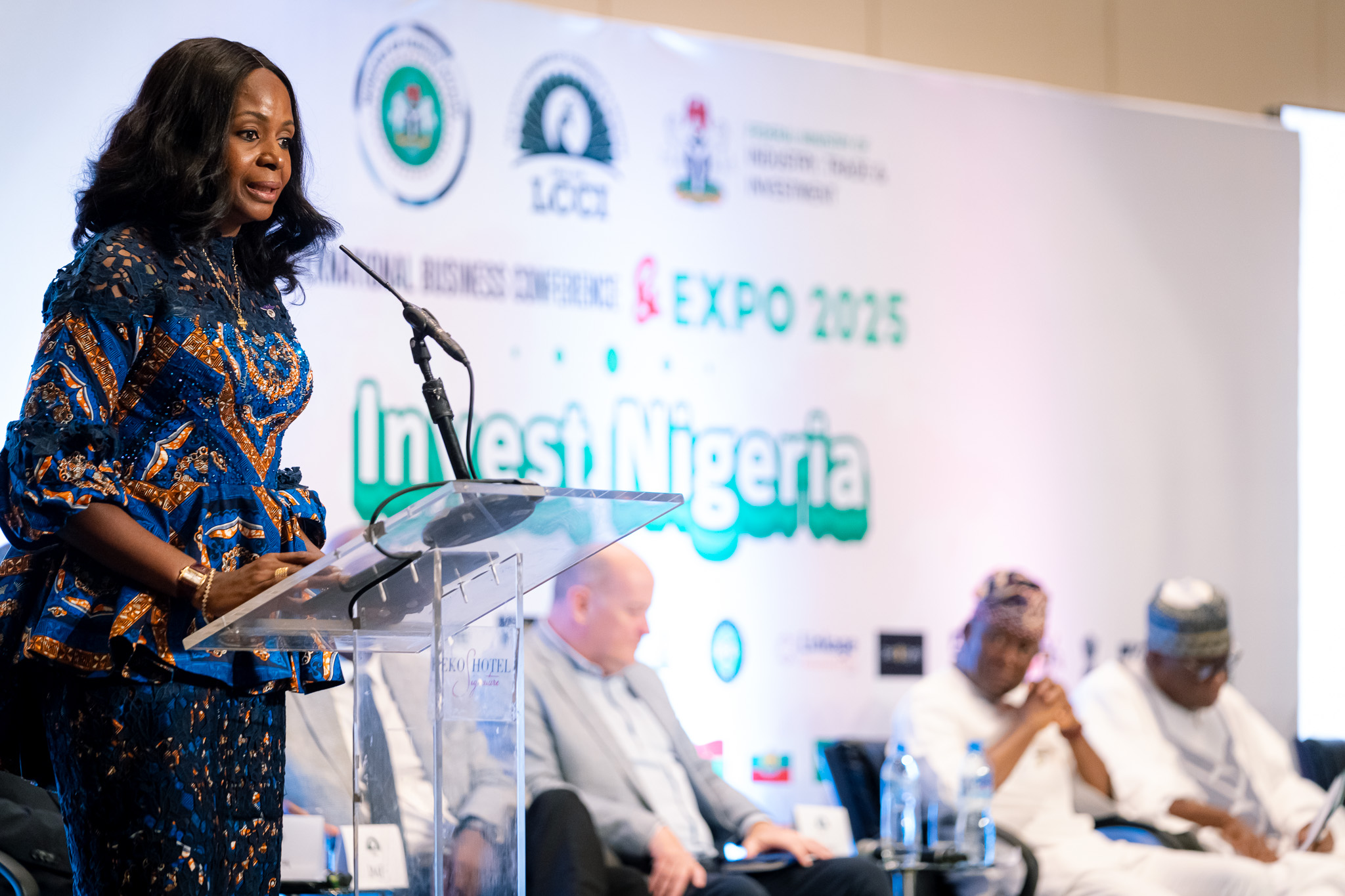On August 25 2025, at the Lagos Chamber of Commerce and Industry (LCCI) 2025 International Business Conference & Expo, our Founding/Non-Executive Director, Dr. Awele Elumelu, O.F.R, delivered the key private sector remarks, sharing the entrepreneur’s perspective on “Investing in Nigeria: The Challenges and the Opportunities.”
– Good morning, Your Excellencies, distinguished ladies and gentlemen.
– I want to thank the Chamber for this invitation and for creating a platform where the private sector, policymakers, and global partners can come together to talk honestly about the opportunities on our continent.
– It is a pleasure to join you at this year’s International Business Conference, and I again thank the Lagos Chamber of Commerce and Industry.
– Today, I have been asked to share my perspective on investing in Nigeria — and to shed light on both the challenges and the opportunities.
– I stand here not just as a medical doctor, but as an entrepreneur, an investor, and above all, a strong believer in the power of the private sector to transform our economy.
The Nigerian Context
– Our country is blessed with abundant natural resources. But equally, we face enormous unmet needs. For investors, unmet needs are not barriers — they are business opportunities waiting to be unlocked.
– A few statistics frame this conversation:
− Nigeria is home to over 226 million people, Africa’s most populous nation and the 6th largest population in the world.
− Our median age is just 18 years.
− Over 60% of Nigerians are under the age of 30 — making us the youngest nation in the world.
− By 2025, our population will reach 237.5 million, and by 2050, we are projected to be the third most populous country globally.
– What does this mean? It means we are sitting on a goldmine: a massive market, a future workforce, and a generation of innovators waiting for someone to believe in them. But this can also become a challenge if not properly harnessed for human progress.
The Challenges — and the Opportunities:
Economic Instability & Youth Empowerment
– One of our most pressing challenges is economic instability. Inflation erodes the purchasing power of families. Businesses struggle to survive. Unemployment, especially among youth, is a ticking time bomb.
– But this is also our greatest opportunity. Our young people are dynamic, ambitious, and entrepreneurial. If we give them the right tools — skills, access to capital, and an enabling environment — they will unleash one of the most vibrant workforces in the world.
– That is why my husband and I founded the Tony Elumelu Foundation in 2010, committing $100 million to empower African entrepreneurs. Today, over 24,000 young entrepreneurs have received seed capital. Collectively, they have created over 1.5 million jobs and generated over $4.2 billion in revenue, pulling over 2 million Africans out of poverty.
– This is the power of the private sector — transforming lives, one entrepreneur at a time.
Potência
– Despite our vast gas reserves, millions of Nigerians still lack access to electricity. The economy loses about $26 billion annually to poor power supply.
– Businesses spend more on self-generation than on innovation. Without reliable electricity, how do we grow industries? How do we create jobs?
– At Heirs Holdings, we invested in power through Transcorp Group, turning around dormant assets. This is Africapitalism in action — private capital aligning profit with purpose, filling gaps where others fail, and creating prosperity that is shared.
Cuidados de saúde
– This challenge is personal to me. Nigeria loses over $1.5 billion annually to medical tourism. That is capital flight — but also an opportunity.
– Why should Nigerians travel abroad for treatment when we can build world-class facilities here? Why export patients and in addition, why lose manpower when we can retain skills and create jobs?
– Through Avon Medical and Avon HMO, we chose to act. We are building hospitals and clinics, and providing affordable health insurance — because access is as critical as quality.
– This is how entrepreneurs think: see the problem, create the solution.
Infrastructure
– Nigeria’s infrastructure gap is glaring. Roads, transport, clean water, sanitation — we are lagging behind. Poor infrastructure raises business costs and stifles growth.
– But again, this is an opportunity: for investors in logistics, transport, housing, and infrastructure development.
Conclusion & Call to Action
– Fellow business leaders, these challenges are real. But so is our capacity to overcome them.
− Africa has had sympathy from the international community. Now, Africa needs more investments.
− Africa has had handouts. Now, Africa needs more partnerships.
− Africa has had outsiders telling our story. Now, Africa needs entrepreneurs writing the future with our own hands, and through our successes
– So, my call to everyone is simple:
− To governments: create enabling environments, consistent policies, and encourae the private sector.
− To the private sector: do not wait for perfection — start, build, innovate, invest, and solve.
− To global partners: join us not as patrons, but as peers.
– The future of Nigeria — and of Africa — is not being written in New York, London, or Beijing. It is being written here: in Lagos, Nairobi, Accra, Johannesburg.
– And it will be written by those who see opportunity where others see obstacles, and who have the courage to act.
– That is the spirit that will define Nigeria’s transformation.
– That is the legacy we must all commit to.
Obrigado.


